Table of Contents
Come join us now, and enjoy playing your beloved music and browse through great scores of every level and styles!
Can’t find the songbook you’re looking for? Please, email us at: sheetmusiclibrarypdf@gmail.com We’d like to help you!
Sorabji: In the Hothouse (from Two Piano Pieces) sheet music, Noten, partitura, spartiti 楽譜

Best Sheet Music download from our Library.
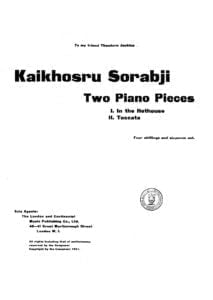
Please, subscribe to our Sheet Music Library.
If you are already a subscriber, please, check our NEW SCORES’ page every month for new sheet music. THANK YOU!
Browse in the Library:
Or browse in the categories menus & download the Library Catalog PDF:
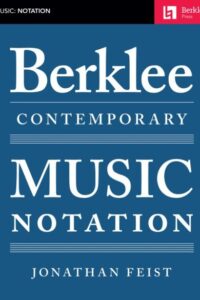
Who was Sorabji?
Kaikhosru Shapurji Sorabji: The Hermit of Modernist Maximalism
In the often-crowded pantheon of 20th-century composers, Kaikhosru Shapurji Sorabji (1892-1988) occupies a unique and enigmatic niche. A composer of staggering ambition, labyrinthine complexity, and self-imposed isolation, Sorabji crafted some of the most monumental, technically demanding, and stylistically idiosyncratic music ever conceived. His work, largely ignored during his lifetime and still challenging audiences today, represents a singular path through modernism – one defined by maximalism, intricate ornamentation, transcendental virtuosity, and a fierce, almost hermetic, independence.
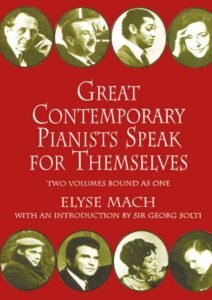
Biography: A Self-Forged Identity
- Birth & Heritage: Born Leon Dudley Sorabji on August 14, 1892, in Chingford, Essex, England. His father was a Parsi engineer from India (thus the Persian-derived name Sorabji), and his mother was English-Spanish. This mixed heritage profoundly shaped his sense of identity, though he felt alienated from both cultures.
- The Name: Around 1914, he legally changed his name to Kaikhosru Shapurji Sorabji. “Kaikhosru” and “Shapurji” were Persian names chosen for their resonance and connection to ancient Persian history and Zoroastrianism, reflecting his deliberate construction of a unique persona.
- Musical Formation: Largely self-taught. He received some piano lessons in his youth but had no formal composition training. His musical education came through voracious listening, score study (especially Bach, Liszt, Busoni, Debussy, Ravel, Scriabin, Szymanowski, Medtner), and wide reading in literature, philosophy, and the occult.
- Early Career & Criticism: Worked as a music critic (under the pseudonym “S. Godfrey”) for outlets like The New Age and The New English Weekly from the 1910s to the 1930s. His critiques were famously acerbic, insightful, and often scathing, particularly targeting English musical provincialism and composers he deemed mediocre (which was most of them).
- The Recluse: Deeply disillusioned by the musical establishment and critical reception to his early performances (which were rare and often controversial), Sorabji gradually withdrew from public musical life starting in the late 1930s. After his mother’s death in 1940, he retreated almost completely to his secluded home “The Eye” in Corfe Castle, Dorset, where he lived with his companion, Reginald Norman Best, until his death. He forbade performances of his music for decades.
- The Ban Lifted: In 1976, pressured by a growing underground interest spearheaded by pianists like Yonty Solomon and Alistair Hinton (who later became his literary executor), Sorabji reluctantly lifted the ban on performances, provided he approved the performer.
- Death: Sorabji died on October 15, 1988, in Winfrith Newburgh, Dorset, leaving behind a colossal legacy of unpublished manuscripts.
Works: Monuments of Sound

Sorabji’s output is vast and overwhelmingly dominated by solo piano music, though he also composed orchestral works, chamber music, organ symphonies, and songs. His works are renowned for their extreme length, density, and technical difficulty, pushing the boundaries of playability.
- Key Masterpieces:
- Opus Clavicembalisticum (1930): His most famous (or infamous) work. A colossal 4+ hour piano epic in 12 movements (including fugues, passacaglias, toccatas, cadenzas), often considered one of the most challenging solo piano works ever written. A summit of contrapuntal complexity and virtuosic display.
- Symphonic Variations for Piano (1935-37): Another monumental work, exploring vast variation forms over an extended duration.
- Sequentia Cyclica super “Dies iræ” ex Missa pro Defunctis (1948-49): A massive cycle of 27 variations on the “Dies Irae” chant, demonstrating his intricate contrapuntal and transformative skills.
- 100 Transcendental Studies (1940-44): True to their name, these studies explore extreme technical and expressive demands far beyond those of Liszt or Chopin.
- Symphonies for Solo Piano: Several exist, including his Symphony No. 2 (“Jāmī”), blending orchestral textures and scope onto the piano.
- Gulistān – Nocturne for Piano (1940): A prime example of his lush, perfumed, and incredibly intricate “Persian”-inspired style.
- Concerti: He wrote several for solo piano and orchestra (e.g., Concerto per suonare da me solo e senza orchestra, per divertirsi), which are symphonic in scale and require superhuman virtuosity.
- Symphonies for Organ: Vast, complex works exploring the sonic possibilities of the instrument.
Analysis of Style: A Universe of Complexity
Sorabji’s style is instantly recognizable yet difficult to categorize. It synthesizes diverse elements into a unique and overwhelming whole:
- Maximalism: This is the defining characteristic. Sorabji embraced extremes:
- Length: Works lasting several hours are common.
- Density: Highly polyphonic textures, often with multiple independent melodic lines woven together in complex counterpoint (influenced by Bach, Busoni).
- Virtuosity: Demands transcendental technique – cascades of notes, complex polyrhythms, wide leaps, immense power, and extreme delicacy. He wrote as if the pianist had four hands.
- Ornamentation: Baroque-like ornamentation (trills, mordents, turns, grace notes) is ubiquitous, often layered and integral to the texture, creating shimmering, kaleidoscopic surfaces (influenced by Scriabin, Szymanowski, Middle Eastern/Persian music).
- Dynamic Range: From barely audible whispers to thunderous, percussive climaxes.
- Harmony: A complex fusion:
- Rooted in late-Romantic chromaticism (Scriabin, Szymanowski, early Schoenberg).
- Freely employed dissonance, clusters, and intricate chord structures.
- Often retained a sense of tonal centers or polarity, even amidst dense chromaticism (unlike strict atonality).
- Incorporated modal inflections, sometimes evoking Persian or Spanish flavors.
- Rhythm: Highly complex and fluid:
- Frequent use of polyrhythms (multiple simultaneous rhythms), cross-rhythms, and nested tuplets (triplets within quintuplets, etc.).
- Tempo often fluctuates wildly, requiring immense control.
- A sense of improvisatory freedom within highly structured forms.
- Form: Often large-scale, complex, and idiosyncratic:
- Favored variations (passacaglias, chaconnes), fugues, toccatas, and intricate multi-movement structures (like the Opus Clavicembalisticum).
- Forms were often expansive and cumulative, building through layered repetition and intensification rather than traditional development.
- Architecture was paramount, even in the densest textures.
- Influences (Assimilated, Not Imitated):
- Ferruccio Busoni: The most profound influence. Busoni’s ideas of “Young Classicism,” the transcendental potential of the piano, the fusion of Bachian counterpoint with modern harmony, and the concept of “Junge Klassizität” resonated deeply. Sorabji dedicated his Opus Clavicembalisticum to Busoni’s memory.
- Franz Liszt: Virtuosity, thematic transformation, large-scale forms, and the symphonic poem concept translated to piano.
- J.S. Bach: Contrapuntal mastery, structural rigor, and the use of forms like fugue and passacaglia.
- Alexander Scriabin: Mysticism, harmonic language, dense textures, and ecstatic climaxes.
- Karol Szymanowski: Sensuous harmony, intricate ornamentation (especially in the “Persian” inspired works like Métopes and Masques), and voluptuous textures.
- Debussy & Ravel: Color, texture, exoticism, and pianistic refinement.
- Mediterranean & Persian Cultures: While not authentically recreating these styles, he evoked their essence through ornamentation, melodic turns, and titles (Gulistān, Jāmī), reflecting his fascination with his Persian heritage and the wider Orient.
- Aesthetic: Sorabji’s music aimed for:
- Transcendence: Pushing beyond perceived limits of instrument, performer, and listener.
- Luxuriance & Opulence: A rich, sensual, almost decadent sound world.
- Intellectual Rigor: Underlying the sensual surface was meticulous structural planning.
- Individualism: A complete rejection of prevailing trends (serialism, neoclassicism, minimalism) in favor of his own uncompromising vision.
Legacy: From Obscurity to Cult Status
Sorabji’s legacy is complex and evolving:
- Decades of Neglect: His self-imposed exile and performance ban meant his music was virtually unknown outside a tiny circle for nearly 40 years. Manuscripts were inaccessible, unplayable, and unpublished.
- The Pioneers (1970s-): The lifting of the ban sparked interest. Pianists like Yonty Solomon, Michael Habermann, Geoffrey Douglas Madge (who made the first complete recording of Opus Clavicembalisticum in 1977), and later Marc-André Hamelin, Jonathan Powell, Fredrik Ullén, and Ronald Stevenson began the monumental task of learning, performing, and recording his works. This required immense dedication and technical prowess.
- Publication & Scholarship: The Sorabji Archive, established by Alistair Hinton (Sorabji’s literary executor), has been crucial in cataloging, editing, and facilitating the publication of scores (primarily by Dover Publications and The Sorabji Music Archive). Scholarly work is gradually increasing.
- Recordings Renaissance: The CD era and digital distribution (YouTube, streaming) have been transformative. Dedicated labels (Altarus, BIS, Toccata Classics, Piano Classics) have released numerous recordings, making this once-inaccessible music available globally. Complete cycles of the 100 Studies and other major works are underway.
- The Cult & The Challenge: Sorabji remains a “composer’s composer” and a cult figure. His music is not mainstream concert fare due to its extreme demands and duration. However, it commands deep respect and fascination among pianists, composers, and listeners drawn to its unique sound world and uncompromising vision. He is seen as the ultimate iconoclast, forging a path utterly independent of 20th-century musical fashions.
- Influence: His direct influence on other composers is hard to pinpoint due to his obscurity, but he stands as a powerful symbol of uncompromising artistic integrity and the exploration of extreme complexity and virtuosity. Composers interested in maximalism, intricate counterpoint, or pushing pianistic limits inevitably encounter his shadow.
- Copyright Controversy: The complex copyright status of his works (involving the Sorabji Archive and publishers) has sometimes been a point of friction within the community of performers and scholars seeking access.
Sorabji: The Solitary Giant
Kaikhosru Shapurji Sorabji was a true original. He inhabited a musical universe entirely of his own making, synthesizing diverse influences into a style characterized by unparalleled complexity, sensuous opulence, and transcendental ambition. His deliberate withdrawal from the world ensured decades of obscurity, but the dedication of pioneering performers and the power of recording technology have brought his extraordinary soundscapes to light. While his music remains challenging and demanding, it offers unparalleled rewards: a journey into a world of labyrinthine beauty, overwhelming power, and intellectual fascination. Sorabji stands as a testament to the power of an utterly individual artistic vision, uncompromising in its scope and ambition, a solitary giant whose monumental creations continue to challenge and inspire. He redefined the possible for the piano and left a legacy that continues to unfold as more performers dare to scale his musical Himalayas.
“In the Hothouse” is one of Sorabji’s most evocative and frequently performed works, serving as a perfect entry point into his dense, sensuous sound world. Here’s a detailed look at this fascinating piece:
Context: Two Piano Pieces (1918)
- Composed: 1918 (early in Sorabji’s career, age 26).
- Publication: First published in 1920, making it one of the earliest Sorabji works available in print.
- The Pair: “In the Hothouse” is paired with “Toccata” – a contrasting, hyper-virtuosic, and structurally complex piece showing his Busoni/Liszt influences. “In the Hothouse” offers the sensual, atmospheric counterpoint.
- Significance: Represents Sorabji’s early mastery of texture, harmony, and evocative atmosphere. It predates his gargantuan works but already displays his unique voice.
“In the Hothouse”: A Sensory Immersion
- Title & Imagery: The title instantly conjures an environment: humid, lush, teeming with exotic, overripe plant life, heavy perfumes, and stifling, enclosed heat. Sorabji translates this sensory overload into sound.
- Form & Structure: Relatively free and rhapsodic. It unfolds as a continuous, organic stream of consciousness rather than adhering to strict classical forms. Think of it as an elaborate, decadent arabesque.
- Style & Character:
- Extreme Sensuality: This is the defining feature. The music drips with lush, complex harmonies and suffocatingly rich textures.
- Harmony: Deeply chromatic, rooted in late Scriabin and early Szymanowski. Expect dense, constantly shifting chords: augmented harmonies, whole-tone inflections, unresolved dissonances creating tension, and sudden moments of surprising consonance like shafts of light piercing foliage. It avoids traditional tonality but gravitates around implied centers.
- Texture: Thick, layered, and constantly in motion. Tremolos, trills, rapid filigree (ornamental passages), and cascading arpeggios create a shimmering, humid haze. Melodies are often embedded within this dense undergrowth rather than standing clearly apart. The writing often requires the pianist to sustain multiple layers simultaneously.
- Rhythm: Fluid and flexible, often obscured by the sheer density of notes and ornamentation. Rubato (expressive tempo fluctuations) is essential. While less overtly complex polyrhythmically than his later works, the rhythmic flow feels organic and improvisatory.
- Dynamics & Articulation: Wide dynamic range, often shifting suddenly between extremes (e.g., thunderous climaxes collapsing into fragile whispers). Articulation varies from sharp staccatos to legatissimo passages that blur together. Pedaling is crucial for sustaining the harmonic haze and creating resonance.
- Ornamentation: Quintessential early Sorabji. Trills, mordents, turns, and grace notes are not mere decoration; they are the texture, creating constant flickering movement and contributing to the claustrophobic, teeming atmosphere. This foreshadows the intricate ornamentation dominating his mature style.
- Emotional Landscape: Evokes opulence, decadence, languor, mystery, stifling heat, hidden dangers, and overwhelming sensory stimulation. There’s a sense of beauty bordering on the grotesque due to its sheer intensity.
Influences Audible in “In the Hothouse”
- Scriabin (Primary): The harmonic language (mystic chords, unresolved dissonance, ecstatic climaxes), the sensual atmosphere, and the use of trills/tremolos are deeply indebted to Scriabin’s late sonatas and poems (e.g., Vers la flamme). Sorabji pushes Scriabin’s decadence further.
- Szymanowski: The opulent textures, perfumed harmonies, and “orientalist” exoticism (though abstracted here) strongly recall Szymanowski’s “Métopes” or “Masques,” which Sorabji admired deeply.
- Debussy: The focus on atmosphere, texture, and harmonic color (whole-tone scales, parallel chords) shows Debussy’s influence, though rendered with far greater density and intensity.
- Ravel: The virtuosic filigree and lush harmonies (think “Gaspard de la Nuit,” especially “Ondine” or “Le gibet”) are a touchstone, again amplified.
- Liszt: The rhapsodic freedom and dramatic gestures hint at Liszt, though filtered through a post-Scriabinesque lens.
Performance Challenges
- Texture & Balance: Maintaining clarity amidst the dense, rapidly shifting textures is paramount. The pianist must carefully voice chords and layers to prevent muddiness while sustaining the essential harmonic haze.
- Ornamentation as Texture: Executing the constant ornamentation smoothly and evenly, integrating it into the melodic and harmonic flow rather than treating it as mere decoration.
- Dynamic Control: Navigating the extreme dynamic contrasts and sudden shifts without sounding jarring. Creating a true pianissimo shimmer within complexity is incredibly difficult.
- Rubato & Phrasing: Applying expressive tempo fluctuations naturally while maintaining the overall structural coherence and forward momentum of the rhapsodic form.
- Pedaling: Using the pedal to create resonance and blend without causing harmonic blurring or loss of rhythmic definition. Requires exceptional sensitivity.
- Stamina & Focus: While shorter than his later works (typically 12-15 minutes), the piece demands intense concentration and physical control to sustain the atmosphere and navigate the technical intricacies.
Legacy & Significance of “In the Hothouse”
- Accessibility: It remains one of Sorabji’s most “accessible” works due to its evocative title, relatively shorter duration, and concentrated expression. It’s a frequent choice for pianists introducing audiences to Sorabji.
- Blueprint: It serves as a crucial blueprint for Sorabji’s mature style, showcasing his core preoccupations: sensuality, harmonic density, intricate ornamentation as texture, and atmospheric evocation, all present in embryonic form.
- Performance History: Despite Sorabji’s later ban, “In the Hothouse” (along with the Toccata) was one of the few pieces occasionally performed during his lifetime (e.g., by Sorabji himself and pianist Reginald Paul) and became a key work for the pioneering generation post-1976 (Yonty Solomon, Michael Habermann, Marc-André Hamelin, Jonathan Powell, Fredrik Ullén).
- Gateway Piece: It functions as a vital “gateway drug” into Sorabji’s world. Its success in conveying its intense atmosphere often encourages listeners to explore his more monumental, complex works.
- Standalone Masterpiece: Regardless of its role as an introduction, it stands as a perfectly formed and powerful piece of early modernist piano writing, a miniature tone poem of extraordinary evocative power.
“In the Hothouse” is a sun-drenched, overripe, and intoxicating immersion into Sorabji’s unique aesthetic. It captures the essence of his sensual maximalism in a concentrated dose, showcasing his debt to Scriabin and Szymanowski while asserting his own distinct voice. Its evocative power, technical brilliance, and relative brevity ensure its enduring place as one of his most beloved and frequently performed works, offering a compelling glimpse into the hothouse of Sorabji’s extraordinary musical imagination.
| Artist or Composer / Score name | Cover | List of Contents |
|---|---|---|
| Aebersold, Jamey Jazz Play Along Book + Audio Mp3 – Vol 91-Players Choice | Jazz Play Along Vol 091 – [Player’s Choice] | |
| Aebersold, Jamey Jazz Play Along Book + Audio Mp3 – Vol 92-Lennie Neihaus | Jazz Play Along Vol 092 – [Lennie Neihaus] | |
| Aebersold, Jamey Jazz Play Along Book + Audio Mp3 – Vol 93 What’s new | Jazz Play Along Vol 093 – [What’s New] | |
| Aebersold, Jamey Jazz Play Along Book + Audio Mp3 – Vol 94 Hot Hhouse | Jazz Play Along Vol 094 – [Hot House] | |
| Aebersold, Jamey Jazz Play Along Book + Audio Mp3 – Vol 95- 500 miles high | Jazz Play Along Vol 095 – [500 Miles High] | |
| Aebersold, Jamey Jazz Play Along Book + Audio Mp3 – Vol 96-Latin Quarter | Jazz Play Along Vol 096 – [Latin Quarter] | |
| Aebersold, Jamey Jazz Play Along Book + Audio Mp3 – Vol 97-Standards with strings | Jazz Play Along Vol 097 – [Standards With Strings] | |
| Aebersold, Jamey Jazz Play Along Book + Audio Mp3 – Vol 99 Tadd Dameron | Jazz Play Along Vol 099 – [Tadd Dameron] | |
| Aerith’s Theme – F.F. Vii エアリスのテーマ (Musescore File).mscz | ||
| Aerosmith – Amazing | ||
| Aerosmith – Angel | ||
| Aerosmith – Big Ones Piano Vocal Guitar chords |
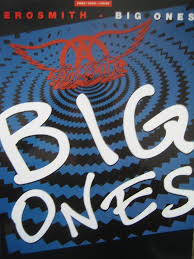 |
Aerosmith – Big Ones Piano Vocal Guitar chords |
| Aerosmith – Crazy | ||
| Aerosmith – Dream On | ||
| Aerosmith – I Dont Want To Miss A Thing | ||
| Aerosmith 1973-1979 – Guitar Play Along with MP3 audio Guitar Signature Licks with Tablature |
 |
Aerosmith 1973-1979 Signature Licks |
| Aerosmith Greatest Hits (Guitar) with Tablature |
 |
aerosmith greatist hist guitar |
| Aerosmith Nine Lives Original Songbook Guitar Tabs |
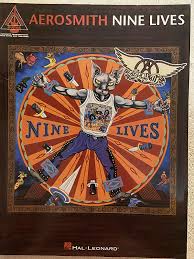 |
 |
| Aesthetics Of Music Musicological Perspectives by Stephen Downes(Book) |
 |
|
| Affections touching across time (Inuyasha OST) Kaoru Wada | ||
| Afi – Love Like Winter | ||
| Afi – Miss Murder | ||
| AFI’s Top 25 Film Scores Songbook |
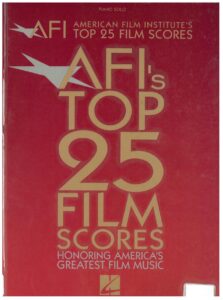 |
AFI’s Top 25 Film Scores Songbook |
| Africa – Toto.mscz | ||
| Africa And The Blues (Book) |
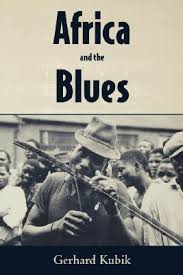 |
|
| Afro Cuban Keyboard Grooves by Manny Patiño and Jorge Moreno |
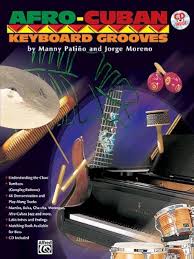 |
Afro Cuban Keyboard Grooves by Manny Patiño and Jorge Moreno |
| Afroman – Because I Got High | ||
| After Hours for PIANO DUET by Pam Wedgwood |
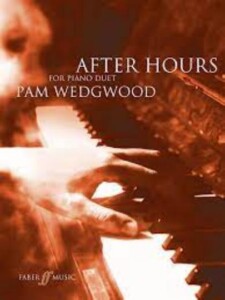 |
After Hours for PIANO DUET by Pam Wedgwood |
| After Hours For Solo Piano. Book 3 (Pam Wedgwood) |
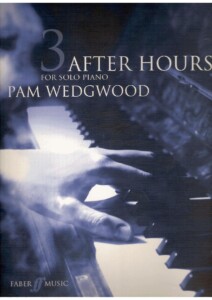 |
After Hours For Solo Piano. Book 3 (Pam Wedgwood) |
| After Hours for Trumpet and Piano by Pam Wedgwood |
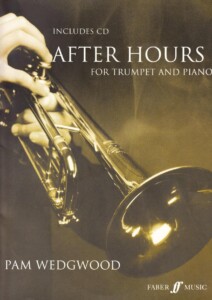 |
After Hours for Trumpet and Piano by Pam Wedgwood |
| After You’ve Gone Turner Layton And Henry Creamer 1918 Jazz Standard (Vintage sheet music) |
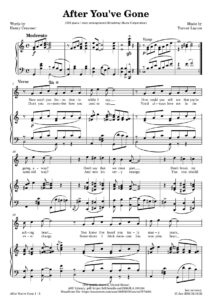 |
|
| Again, as before, alone (P. I. Tchaikovsky) | ||
| Age of Empires 2 – Main theme | Age of Empires 2 – Main theme | |
| Agnes Obel Broken Sleep From Myopia | Agnes Obel Broken Sleep From Myopia | |
| Agnes Obel Chord Left |
 |
|
| Agnes Obel Fuel To Fire |
 |
|
| Agnes Obel Island Of Doom From Myopia | Agnes Obel Island Of Doom From Myopia | |
| Agnes Obel Pass Them By |
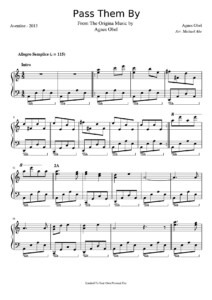 |
|
| Agnes Obel – Riverside Piano |
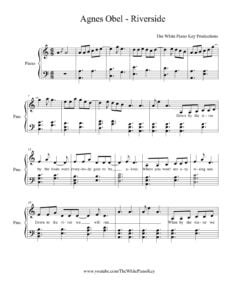 |
|
| Agnes Obel – September Song |
 |
|
| Agnes Obel – Tokka |
 |
|
| Agnes Obel Citizen of Glass Songbook (piano solo) |
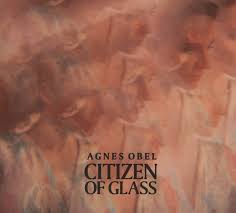 |
Agnes Obel Citizen Of Glass |
| Agnes Obel Falling Catching |
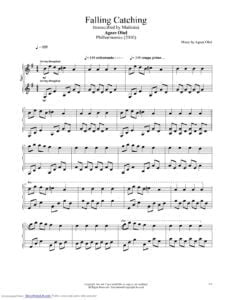 |
|
| Agnes Obel Falling, Catching |
 |
|
| Agnes Obel Familiar |
 |
|
| Agnes Obel Fuel To Fire |
 |
|
| Agnes Obel It’s Happening Again |
 |
|
| Agnes Obel Just So |
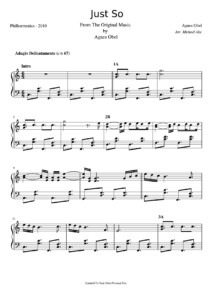 |
|
| Agnes Obel Mary |
 |
|
| Agnes Obel Riverside |
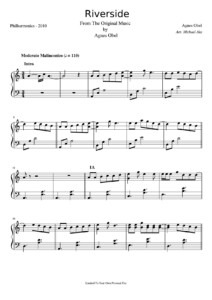 |
|
| Agnes Obel September Song |
 |
|
| Agnes Obel Smoke And Mirrors |
 |
|
| Agnes Obel The Curse |
 |
|
| Agnes Obel Tokka |
 |
|
| Agnes Obel Words Are Dead |
 |
|
| Aguas De Março Jazz Piano Score Jobim |
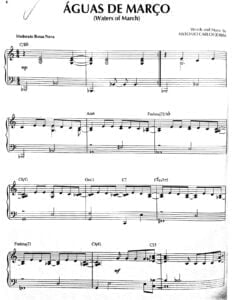 |
|
| Agustin Carlevaro Album Para Guitarra Album For Guitar |
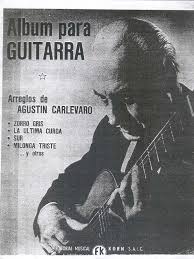 |
Agustin Carlevaro Album Para Guitarra Album For Guitar |
| Aha – Take On Me |
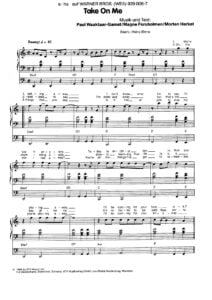 |
|
| Ahead On Our Way Ff Vii (Musescore File).mscz | ||
| Ahmad Jamal Poinciana Full score (Song of the Tree) | Ahmad Jamal Poinciana Full score (Song of the Tree) | |
| Ahmad Jamal The Ahmad Jamal Collection (Artist Transcriptions) |
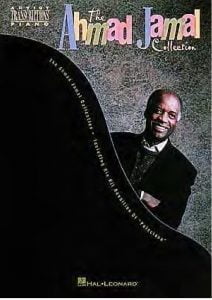 |
Ahmad Jamal The Ahmad Jamal Collection Artist Piano Transcriptions contents 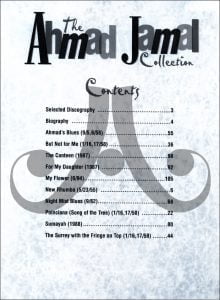 |
| Ahmad Jamal Feeling Good Transcription | Ahmad Jamal Feeling Good Transcription | |
| Ahmad Jamal I Love Music (From The Awakening) | Ahmad Jamal I Love Music (From The Awakening) | |
| Ahmad Jamal Wave from the album The Awakening |
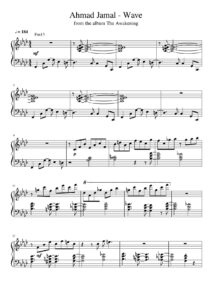 |
|
| Ai Mei – Rainie Yang | ||
| Aimee Mann – Wise Up | ||
| Ain’t Misbehavin’ Fats Waller As Played By Joe Pass (Musescore File).mscz | ||
| Ainsi soit je (Mylène Farmer) | ||
| Air on the G string, from BWV 1068 (10 string, Yepes tuning).mscz | ||
| Air Supply Greatest Hits |
 |
AIR SUPPLY GREATEST |
| Airegin by Soony Rollins – Jazz Play Along with sheet music |
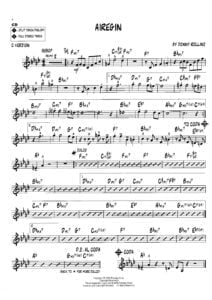 |
Airegin |
| Akira Ifukube – Sonata for Violin and Piano I – Allegro |
 |
|
| Akira Ifukube End Titles Godzilla Vs Destoroyah |
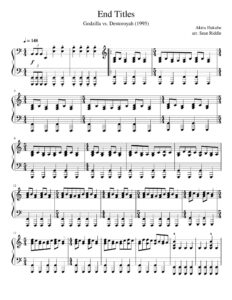 |
|
| Akira Ifukube Mesa March Godzilla |
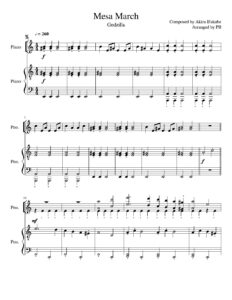 |
|
| Akira Yamaoka Silent Hill 2 Promise (Reprise) |
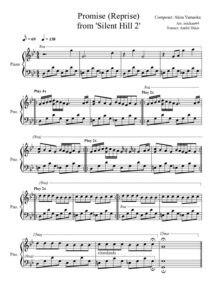 |
|
| Akira Yamaoka, Silent Hill Room Of Angel (Piano) | Akira Yamaoka, Silent Hill Room Of Angel (Piano) | |
| Aknin, Laurent Le Choix Du Coeur Easy Piano Solo (du film The Student and Mister Henri (L’Étudiante et Monsieur Henri) | Aknin-Laurent-Le-Choix-Du-Coeur-Easy-Piano-Solo | |
| Al Di Meola – Guitar Technique SongBook with Tablature |
 |
Al Di Meola – Guitar technique SongBook |
| Al Di Meola A Guide To Guitar Chords Scales And Arpeggios Master Classes With Bob Aslanian |
 |
Al Di Meola A Guide To Guitar Chords Scales And Arpeggios Master Classes With Bob Aslanian |
| Al Di Meola Collection Music Words Pictures Artist Transcriptions Guitar |
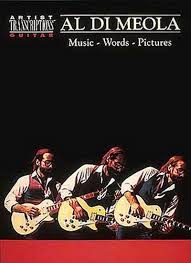 |
Al Di Meola Collection Music Words Pictures Artist Transcriptions Guitar — al di meola collection songbook |
| Al Di Meola Enigma Of Desire (Guitar) |
 |
|
| Al Di Meola Guitar School Elegant Gypsy Songbook with Tablature |
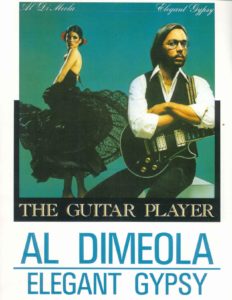 |
Al Di Meola Guitar School Elegant Gypsy Songbook |
| Al Di Meola Guitar Tabs Songbook Electric Rendezvous |
 |
Al Di Meola Guitar Tabs Songbook Electric Rendezvous |
| Al Di Meola Solace (Guitar) | Al Di Meola Solace (Guitar) | |
| Al Di Meola Solos by Dan Towey with Tablature |
 |
Al Di Meola Solos by Dan Towey with Tablature — al di meola solos |
| Al Di Meola Super Guitarist Guitar Tabs Songbook |
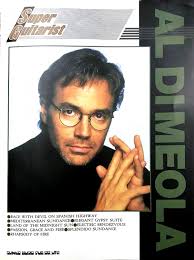 |
Al Di Meola Super Guitarist Guitar Tabs Songbook |
| Al Di Meola When Youre Gone | Al Di Meola When Youre Gone | |
| Al Di Meola, John McLaughlin and Paco De Lucia – Friday Night in San Francisco (Guitar with Chords) |
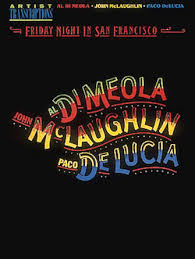 |
Al Di Meola, John McLaughlin and Paco De Lucia – Friday Night in San Francisco Contents |
| Al di Meola’s Picking Techniques by Al di Meola |
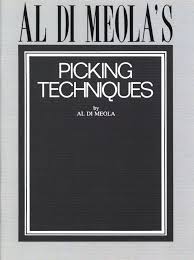 |
|
| Al Green – Let´s Stay Together Melody And Guitar Chords |
 |
|
| Al Green Let’s Stay Together |
 |
|
| Al Green The Best Of Piano Vocal Chords |
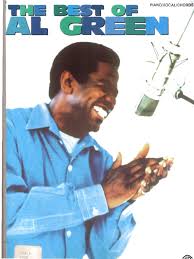 |
Al Green The Best Of Piano Vocal Chords |
| Al Jarreau – Breakin’ Away |
 |
|
| Al Jarreau Spain (I can recall) Piano Vocal Guitar Chords |
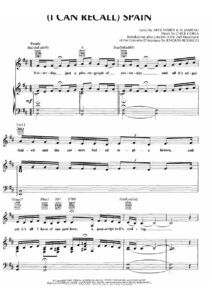 |
|
| Al Jarreau The Best Of Al Jarreau Piano Vocal Guitar chords |
 |
Al Jarreau The Best Of Book |
| Al Stewart – Time Passages |
 |
|
| Al Stewart – Year Of The Cat |
 |
|
| Al Stewart Greatest Songs Of Book |
 |
AL STEWART SONGBOOK |
| Aladdin – A Whole New World – Alan Menken | Aladdin – A Whole New World – Alan Menken | |
| Aladdin – Arabian Nights (Musescore File).mscz | ||
| Ãlafur Arnalds – 3055 Eulogy For Evolution | Ãlafur Arnalds – 3055 Eulogy For Evolution | |
| Alain Barriere – Les Guinguettes |
 |
|
| Alain Barrière – Emporte Moi (Y Volveré) |
 |
|
| Alain Barriere – Tu T’en Vas |
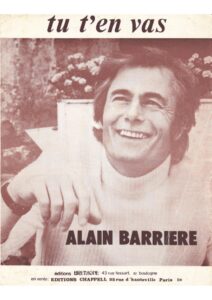 |
|
| Alain Chamfort Songbook Book |
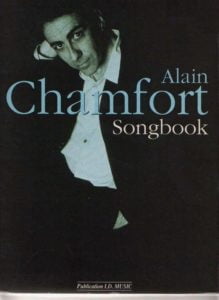 |
ALAIN CHAMFORT SONGBOOK |
| Alain Souchon Au Ras Des Paquerettes Piano Vocal Guitar TAB |
 |
Alain Souchon Au Ras Des Paquerettes Piano Vocal Guitar TAB |
| Alain Souchon Ecoutez d’où Ma Peine Vient Piano Vocal Guitar chords |
 |
Alain Souchon Ecoutez d’où Ma Peine Vient Piano Vocal Guitar chords |
| Alain Souchon les plus grands succès de (partitions, sheet music) Piano Vocal |
 |
Alain Souchon les plus grands succès de (partitions, sheet music) Piano Vocal |
| Alan Belkin – Una Guía Práctica de Composición Musical (Spanish) | Book Theory | |
| Alan Berg Sonate Für Klavier, Op. 1 (Piano) |
 |
|
| Alan Jackson – Between the Devil and Me |
 |
|
| Alan Jackson – Buicks to the Moon |
 |
|
| Alan Jackson – I’ll Go On Loving You |
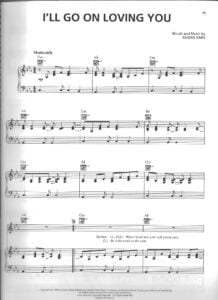 |
|
| Alan Jackson – It’s Five Oclock Somewhere |
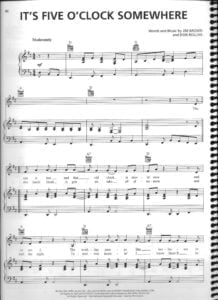 |
|
| Alan Jackson – Little Bitty |
 |
|
| Alan Jackson – Once In A Lifetime Love |
 |
|
| Alan Jackson – Remember When |
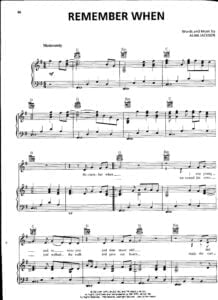 |
|
| Alan Jackson – That’d Be Alright |
 |
|
| Alan Jackson – There Goes |
 |
|
| Alan Jackson – Where I Come From |
 |
|
| Alan Jackson Precious Memories Piano Vocal Guitar |
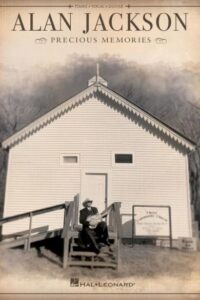 |
Alan Jackson Precious Memories Piano Vocal Guitar |
| Alan Jackson Remember When Piano Solo |
 |
|
| Alan Lomax – The Penguin Book Of American Folk Songs (GUITAR) |
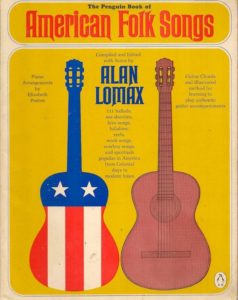 |
Alan Lomax – The Penguin Book Of American Folk Songs GUITAR) |
| Alan Menken – A Christmas Carol A Place Called Home |
 |
|
| Alan Menken – Beauty and the Beast (easy piano) Complete score arr. piano & guitar chords |
 |
Alan Menken – Beauty and the Beast (easy piano) |
| Alan Menken – Little Shop Of Horrors |
 |
Alan Menken – Little Shop Of Horrors |
| Alan Menken – Songbook |
 |
Alan Menken songbook sheet music |
| Alan Menken – Tangled (Disney) Rapunzel songbook |
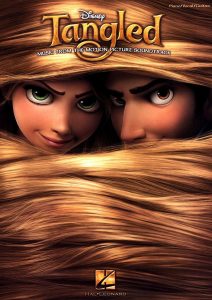 |
Tangled |
| Alan Menken A Christmas Carol (The Musical) piano conductor score |
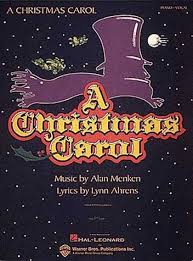 |
Alan Menken A Christmas Carol (The Musical) piano conductor score |
| Alan Menken Aladdin (songbook) |
 |
Alan Menken Aladdin |
| Alan Menken Aladdin – Broadway Musical Songbook |
 |
Aladdin – Broadway Musical Songbook – Alan Menken |
| Alan Menken Hercules Disney Songbook Complete |
 |
Hercules Disney Songbook Complete |
| Alan Menken Hunchback Of Notre Dame, The Musical Vocal Selections Lyrics Stephen Schwartz |
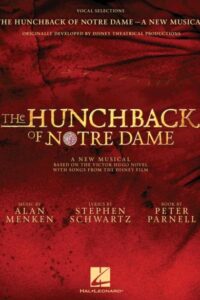 |
Alan Menken Hunchback Of Notre Dame, The Musical Vocal Selections Lyrics Stephen Schwartz |
| Alan Menken I see the light (Tangled-Disney) | Alan Menken I see the light (Tangled-Disney) | |
| Alan Menken My Christmas Tree from Home Alone 2 Lost In New York |
 |
|
| Alan Menken The Hunchback Of Notre Dame (Disney) |
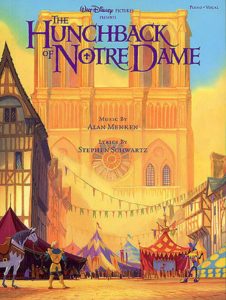 |
Alan Menken The Hunchback Of Notre Dame (Disney) |
| Alan Menken The Little Mermaid Piano Vocal Score (The Musical) | Alan Menken The Little Mermaid Piano Vocal Score (The Musical) | |
| Alan Menken Whole New World Sheet Music, A |
 |
|
| Alan Parsons – Eye in the Sky |
 |
|
| Alan Parsons Project – Don’t Answer Me |
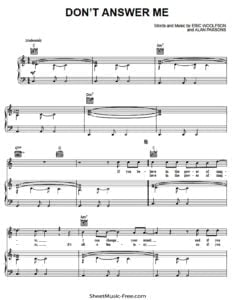 |
|
| Alan Parsons Project – Eye In The Sky |
 |
|
| Alan Parsons Project – Time |
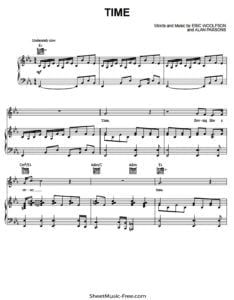 |
|
| Alan Parsons Project – Eve (Piano, Vocal, Guitar) Songbook |
 |
Alan Parsons Project – Eve (Piano, Vocal, Guitar) Songbook |
| Alan Parsons Project – Eye In the Sky (Piano, Vocal, Guitar Songbook) |
 |
Alan Parsons Project – Eye In the Sky (Piano, Vocal, Guitar Songbook) |
| Alan Parsons Project – I Robot (Piano, Vocal, Guitar) Songbook |
 |
Alan Parsons Project – I Robot (Piano, Vocal, Guitar) Songbook |
| Alan Parsons Project – The Essential |
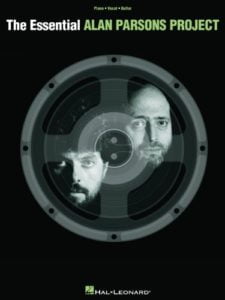 |
Alan Parsons Project |
| Alan Parsons Project Gaudí Piano Vocal Guitar chords |
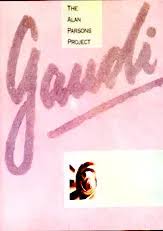 |
Alan Parsons Project Gaudí Piano Vocal Guitar chords |
| Alan Parsons Project The Alan – Prime Time |
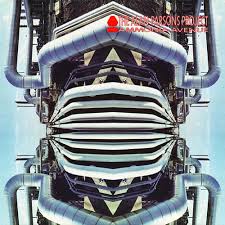 |
Alan Parsons Project The Alan – Prime Time |
| Alan Parsons Project The Alan – Tales Of Mystery And Imagination Edgar Allan Poe |
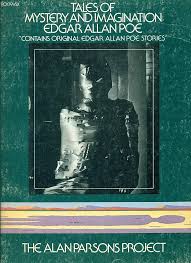 |
Alan Parsons Project The Alan – Tales Of Mystery And Imagination Edgar Allan Poe |
| Alan Raph Sing It First Trombone |
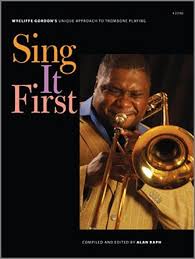 |
